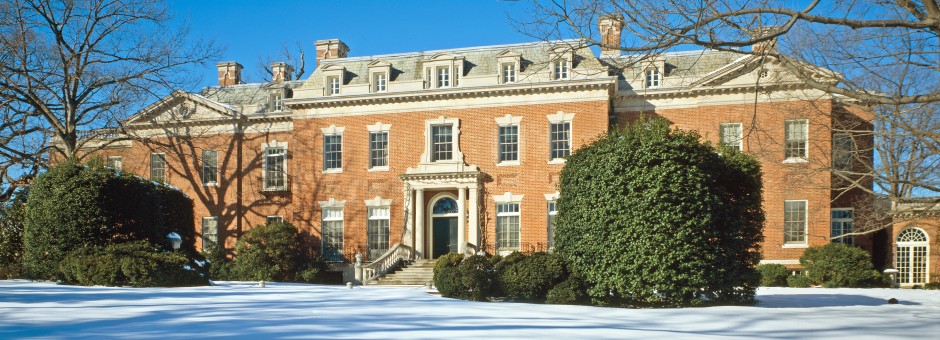This blog was created by the summer interns working in the Dumbarton Oaks Oral History Project to highlight some examples of the archived materials Dumbarton Oaks has to offer.
Jan Ziolkowski, Director of Dumbarton Oaks, inaugurated the Oral History Project in 2008 with the mission of interviewing and recording all people who are or have been significantly associated with Dumbarton Oaks and/or its founders, Mildred and Robert Woods Bliss. To date, the project has logged 100 interviews. These include sessions with former directors, directors of studies, fellows and scholars, staff members, gardeners, and people who knew Mildred and Robert Woods Bliss and the residential period of Dumbarton Oaks’s history.
Most of these were undertaken by eleven Harvard University summer interns who researched, conducted, and transcribed the interviews. In certain cases, current Dumbarton Oaks staff members agreed to interview colleagues in their fields of specialization, and these interviews decidedly benefited from what the interviewer knew of the person being interviewed. Although recorded in either audio or audio-video formats, the interviews are published as digital transcriptions.
Oral history interviews offer an organization the opportunity to recapture its past and increase its institutional memory. In such interviews, people formerly associated with an organization speak of their past experiences, of their successes, and perhaps even of their failures. The record of these memories, captured on audio- and videotape, often provides a more personal, even colorful addendum to what is otherwise the drab official record preserved in the minutes and office correspondence of an institution’s archives. From oral history interviews, an organization can gain a better sense of what it looked like at certain points in time, and, indeed, where it thought it was headed at those times. Of course, in these interviews, memories and perceptions sometimes prove to be at odds with the historical record. But even differing perspectives are invaluable, as they bring to light a sense of what possibly could have been, at least according to the person interviewed. Unfortunately, the human life span puts boundaries on the institutional memory that can be collected with oral history interviews. With each obituary notice of someone not interviewed comes the sad realization that this person’s memories are now irretrievable. For those individuals whom the project was able to interview, the recording and transcript serves as one more lasting legacy.
This blog contains brief biographies of interviewees and some excerpts from their interviews. Complete transcripts are available on the Dumbarton Oaks website. The hope is that this will provide a helpful starting place for examining the oral history of Dumbarton Oaks and will lead to further exploration into the the records of a previous generation.



